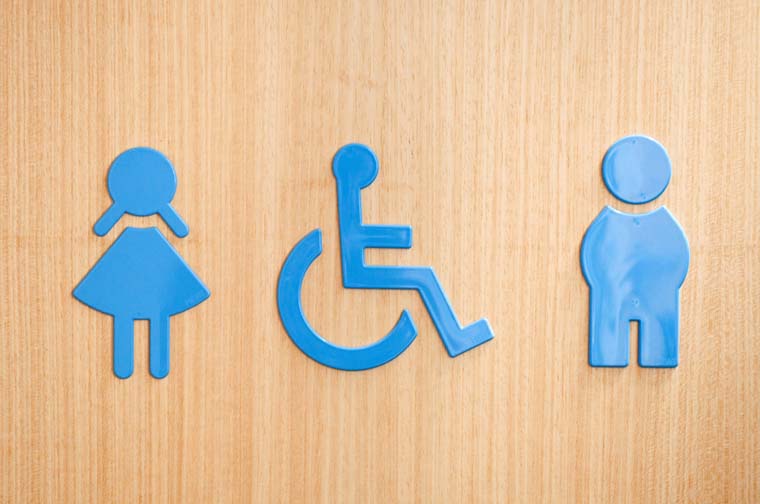
Marilyn* has lived in Qatar for almost five years with her husband and child, Alex*, who has multiple disabilities. She spoke to Brett Roberts about her experiences parenting a non-neurotypical child in Qatar who also has physical challenges. Here, Marilyn shares her family’s struggles, triumphs, and what she hopes can change for children with disabilities in Qatar and around the world. This article is written from Marilyn’s perspective and is adapted from her interview with Brett.
“I moved to Qatar with my husband, who was hired to work in the oil and gas industry, and my child, Alex, who was nearly seven years old. Alex has cerebral palsy, a disorder that affects their motor function. Because of this, they have needed a wheelchair to move around since they were three. They also have epilepsy, vision impairments, and some developmental delays.
Alex’s Educational Experiences
Before moving to Qatar, we investigated what resources and accessibility would be like here. Like many expats, our knowledge of the country was very limited. Back home, Alex was in a class with typical kids, so we hoped it would be the same here. We believed that it was important for Alex to be exposed to typical children and their experiences and for those children to be exposed to Alex. Having this opportunity back home meant that kids could see Alex as more than their disabilities. Alex’s classmates would even help them manoeuvre their wheelchair in class, out to recess, and at various times throughout the day. Those children would also tell their parents about Alex and the adventures they all had together. So, I always saw this as a great social learning experience for everyone in the classroom and their families.
However, I was sad to learn that schools in Qatar do not take this approach. Here, schools for children with disabilities tend to be specialised and are inclusive for all children with disabilities but lack integration with typical children. The large silver lining to this, however, is that these schools offer special assistance that would not be available at other schools. For instance, Alex can see a speech therapist, occupational therapist, and behavioural therapist at their school instead of needing to visit them outside school hours or miss school to do that. This saves travel time and money for us and is very convenient for our family.
Alex attends Family Hope Center, which, in my opinion, is amazing. I have seen Alex make so much progress attending this facility. Family Hope Center was founded by a mother who had her own children with special needs and was unable to find a school for them. Besides education, this school gives children the space to have fun and socialise. As the curriculum is based on level and not age, the teaching there tends to be more student-focused and is adapted to each child’s needs.
With all that said, I do hope to eventually see more integration within the educational system in Qatar. I truly believe that this will help everyone see children like Alex as people and lessen the stigma that surrounds them. And this is necessary because people still stare at Alex in public. I try to do my part by educating them if they approach us to ask about Alex and Alex’s “accessories” (like their wheelchair), even if they are kids. Childhood interactions with all kinds of children would help make these types of uncomfortable interactions much rarer.
Some of these interactions, however, have been very positive and impactful. For instance, during one of our trips to a local mall, a man approached us, thanking us for bringing Alex along. A few days later, we understood why: we saw the same man pushing his child in a wheelchair at the same mall.
Navigating the City
Alex uses a wheelchair that isn’t mechanically assisted, which means that their father and I are the ones usually powering it. It has large wheels on the front and smaller ones on the rear, which will also allow Alex to manoeuvre it without assistance as they get older and stronger.
Despite this, using a wheelchair in a busy city is full of challenges. Simple obstacles on the sidewalk, such as signs, vehicles, construction, or limited or steep curbs, can make getting around difficult. They can cause delays or stress in what most people could consider simple daily outings. We also face issues when entering buildings, as many don’t have ramps available for wheelchairs or a lift. Due to Alex’s growing size and the weight of all the accessories, it’s not easy to get the chair up flights of stairs. If a ramp is not available, we typically pick Alex up and the chair together. This is physically tasking and can pose a greater risk to Alex if something goes wrong.
Fortunately, I have started noticing more establishments placing ramps at their entrances, and while this is helpful, there does not appear to be a standard for them. Several of these ramps are too skinny, too steep, and lack safety items to keep the wheelchair from falling off. They are often made from a smooth stone that has a glossy finish and is visually appealing. But, these types of ramps are slippery for both the chair and the caretaker. This is especially true when they have a layer of fine dust on them or if they happen to be wet.
As I’d like to see more businesses have standardised ramps and lifts, I try to contact companies online or in-person to highlight the problems I see at their establishments. Thankfully, the responses I receive often show me that businesses are open to discussing how to improve accessibility at their locations. I truly believe that most people care about the issue but just lack the information they need to make the right decisions.
Another major challenge we face is finding accessible bathrooms for Alex. Many malls and other establishments do not have the facilities to cater to Alex’s needs. Some newer buildings have separate family washrooms, and we find those very handy in helping us maintain Alex’s modesty and dignity when Alex needs to use them. Even with these rooms, we still need to lay Alex on the floor to attend to their needs. So, having a proper changing area for Alex would not only make life much easier for us, but it will also help us enjoy our family time out and lower the stress of finding an accessible washroom.
Medical Care
I cannot praise Sidra Medicine, its doctors, and its staff enough. It is a world-class facility where Alex has had great success with treatments and appointments. We have also been very fortunate to find a doctor who was a colleague of Alex’s doctor back home. We even had a referral in hand when we arrived, as we were there when Alex’s old doctor called him to discuss Alex’s treatments and upcoming move to Doha.
The care Alex received outside of Sidra has also been acceptable and is comparable to what they get back home. The one area we struggle with, however, is the lack of insurance coverage for care items, including hygiene products that Alex needs. Insurance does not cover these consumable items, and their cost has a fairly significant impact on our household income. And when you also consider school fees, extracurricular fees, and so on, everything can add up quickly.
We had socialised medicine back home, so these costs were either fully or partially covered. Because of this, I would advise families moving here to investigate the type of care their child will need and what will be included in their healthcare coverage before arriving.
Extracurricular Activities
Another institution I would like to applaud is Qatar Foundation (QF), which organises extracurricular activities for children with special needs. Alex attends QF’s swimming lessons, and the classes, as well as the instructors, are excellent. It also organises activities for children in wheelchairs to play games with each other and the coaches. Plus, the parents can even get involved sometimes. We have also discussed with the organisation the possibility of adding horse-riding programmes for these children. Although these classes can be expensive, QF has a scholarship programme to assist with the costs. Without this aid, these activities can be cost-prohibitive for many families.
My Three Wishes
If I were granted three wishes that could make our lives in Qatar easier, the first would be for fully-accessible washrooms. This would make it so much easier for us to go to more places together as a family.
My second wish would be for greater accessibility in public and at home. This would look like more accessibility ramps, lifts, and wheelchair-accessible transportation when out and about. At home, this would include housing that is accessible to all family members. We have been very fortunate to have a kind and understanding compound management that offered to build us a permanent ramp after seeing the temporary one we set up. Within the villa, it would also be great to have a wheelchair-accessible bathroom and shower, wider doorways, and other similar modifications. I hope that more compounds will build villas that are more accessible for this portion of the population and ensure that all amenities are accessible to everyone.
My last wish is more about me. Raising children can be time-consuming, and that is amplified when you have a child with special needs. You can lose some of yourself since so much of your time is devoted to your child’s needs and wants. Because of this, I would wish for employers to offer more flexible schedules that would allow me to attend Alex’s appointments while still being able to work. I don’t want to work less—I just want to perhaps be able to work extra hours one day, so I can work fewer the next and attend Alex’s appointments. This way, I could also progress in my career and, crucially, spend time with other adults. I was able to find a job here that I loved, but unfortunately, my employer could not offer this flexibility.”
*Names have been changed to protect their privacy.



